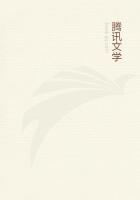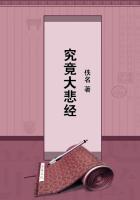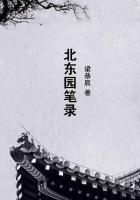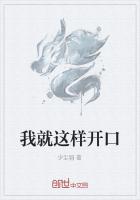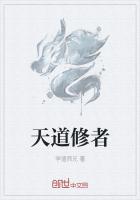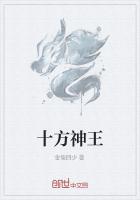A small selection of hokku (1)on butterflies will help to illustrate Japanese interest in the aesthetic side of the subject.Some are pictures only,--tiny color-sketches made with seventeen syllables;some are nothing more than pretty fancies,or graceful suggestions;--but the reader will find variety.Probably he will not care much for the verses in themselves.The taste for Japanese poetry of the epigrammatic sort is a taste that must be slowly acquired;and it is only by degrees,after patient study,that the possibilities of such composition can be fairly estimated.Hasty criticism has declared that to put forward any serious claim on behalf of seventeen-syllable poems "would be absurd."But what,then,of Crashaw's famous line upon the miracle at the marriage feast in Cana?--
Nympha pudica Deum vidit,et erubuit.[1]
Only fourteen syllables --and immortality.Now with seventeen Japanese syllables things quite as wonderful --indeed,much more wonderful --have been done,not once or twice,but probably a thousand times...However,there is nothing wonderful in the following hokku,which have been selected for more than literary reasons:--
Nugi-kakuru [2]Haori sugata no Kocho kana!
[Like a haori being taken off --that is the shape of a butterfly!]Torisashi no Sao no jama suru Kocho kana![3]
[Ah,the butterfly keeps getting in the way of the bird-catcher's pole!Tsurigane ni Tomarite nemuru Kocho kana!
[Perched upon the temple-bell,the butterfly sleeps:]Neru-uchi mo Asobu-yume wo ya --Kusa no cho!
[Even while sleeping,its dream is of play --ah,the butterfly of the grass![4]
Oki,oki yo!Waga tomo ni sen,Neru-kocho!
[Wake up!wake up!--I will make thee my comrade,thou sleeping butterfly.[5]]
Kago no tori Cho wo urayamu Metsuki kana!
[Ah,the sad expression in the eyes of that caged bird!--envying the butterfly!]
Cho tonde --Kaze naki hi to mo Miezari ki!
[Even though it did not appear to be a windy day,[6]the fluttering of the butterflies --!]
Rakkwa eda ni Kaeru to mireba --Kocho kana!
[When I saw the fallen flower return to the branch --lo!it was only a butterfly![7]]
Chiru-hana ni --Karusa arasou Kocho kana!
[How the butterfly strives to compete in lightness with the falling flowers![8]]
Chocho ya!Onna no michi no Ato ya saki!
[See that butterfly on the woman's path,--now fluttering behind her,now before!]
Chocho ya!Hana-nusubito wo Tsukete-yuku!
[Ha!the butterfly!--it is following the person who stole the flowers!]
Aki no cho Tomo nakereba ya;Hito ni tsuku
[Poor autumn butterfly!--when left without a comrade (of its own race),it follows after man (or "a person")!]
Owarete mo,Isoganu furi no Chocho kana!
[Ah,the butterfly!Even when chased,it never has the air of being in a hurry.]
Cho wa mina Jiu-shichi-hachi no Sugata kana!
[As for butterflies,they all have the appearance of being about seventeen or eighteen years old.[9]]
Cho tobu ya --Kono yo no urami Naki yo ni!
[How the butterfly sports,--just as if there were no enmity (or "envy")in this world!]
Cho tobu ya,Kono yo ni nozomi Nai yo ni!
[Ah,the butterfly!--it sports about as if it had nothing more to desire in this present state of existence.]
Nami no hana ni Tomari kanetaru,Kocho kana!
[Having found it difficult indeed to perch upon the (foam-)blossoms of the waves,--alas for the butterfly!]
Mutsumashi ya!--Umare-kawareba Nobe no cho.[10]
[If (in our next existence)we be born into the state of butterflies upon the moor,then perchance we may be happy together!]
Nadeshiko ni Chocho shiroshi --Tare no kon?[11]
[On the pink-flower there is a white butterfly:whose spirit,I wonder?]Ichi-nichi no Tsuma to miekeri --Cho futatsu.
[The one-day wife has at last appeared --a pair of butterflies!]Kite wa mau,Futari shidzuka no Kocho kana!
[Approaching they dance;but when the two meet at last they are very quiet,the butterflies!]
Cho wo ou Kokoro-mochitashi Itsumademo!
[Would that I might always have the heart (desire)of chasing butterflies![12]]
Besides these specimens of poetry about butterflies,I have one queer example to offer of Japanese prose literature on the same topic.The original,of which I have attempted only a free translation,can be found in the curious old book Mushi-Isame ("Insect-Admonitions");and it assumes the form of a discourse to a butterfly.But it is really a didactic allegory,--suggesting the moral significance of a social rise and fall:--
"Now,under the sun of spring,the winds are gentle,and flowers pinkly bloom,and grasses are soft,and the hearts of people are glad.Butterflies everywhere flutter joyously:so many persons now compose Chinese verses and Japanese verses about butterflies.
"And this season,O Butterfly,is indeed the season of your bright prosperity:so comely you now are that in the whole world there is nothing more comely.For that reason all other insects admire and envy you;--there is not among them even one that does not envy you.Nor do insects alone regard you with envy:men also both envy and admire you.Soshu of China,in a dream,assumed your shape;--Sakoku of Japan,after dying,took your form,and therein made ghostly apparition.Nor is the envy that you inspire shared only by insects and mankind:even things without soul change their form into yours;--witness the barley-grass,which turns into a butterfly.[13]
"And therefore you are lifted up with pride,and think to yourself:'In all this world there is nothing superior to me!'Ah!I can very well guess what is in your heart:you are too much satisfied with your own person.That is why you let yourself be blown thus lightly about by every wind;--that is why you never remain still,--always,always thinking,'In the whole world there is no one so fortunate as I.'

